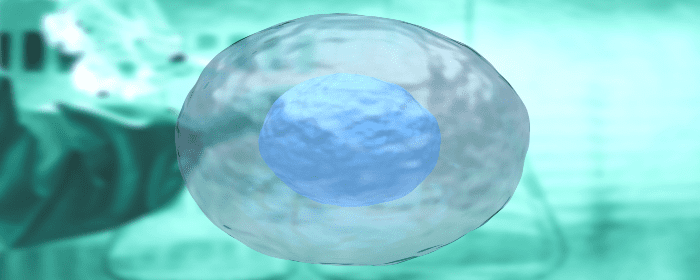
by admin | Dec 30, 2019 | Stem Cell Therapy, Adipose, Age Management, Mesenchymal Stem Cells, Stem Cell Research
Autologous stem cell treatments offer several advantages over other forms of stem cell treatment. In autologous stem cell treatment, a patient’s own stem cells are retrieved, processed, and injected back into the patient’s body. There is no need for a stem cell donor, and the entire procedure can take place in the same medical office. Since the patient’s own cells are used for an autologous stem cell treatment, there is no risk of disease transmission from a donor (because there is no donor) and no risk of rejection (because they are the patient’s own stem cells). Autologous stem cell treatments has some major benefits for the elderly.
Unfortunately, younger stem cells are better for
regenerative medicine than older stem cells are. Moreover, older people have
fewer stem cells that can be harvested than they did when they were younger. So
while autologous stem cell treatment is still advantageous, it becomes more difficult
to achieve as patients get older because their stem cells are fewer and less potent.
Making matters worse, older stem cells compete against more youthful stem
cells, making autologous stem cell treatments potentially even less effective
in older patients.
Fortunately, stem cell researchers are coming up with ways to make the most out of the stem cells that older patients still have. They still take a sample of tissue, such as fat, and harvest the stem cells contained within it. However, instead of injecting all stem cells from the sample (both older and youthful stem cells), researchers select and use only youthful stem cells. Furthermore, they make the treatments even more effective by injecting other substances (e.g. extracellular matrix) that help youthful stem cells survive, grow, and thrive.
To demonstrate the effectiveness of their approach,
researchers collected mesenchymal
stem cells from about a dozen older individuals aged 65 to 86 years old.
They then assorted the stem cells into different groups, separating youthful
from older stem cells. They then used special factors to help the youthful stem
cells grow, increasing the numbers by an impressive 17,000 times. So while only
8% of stem cells produced by older individuals are “youthful,” this laboratory
process increased those numbers to a point that they can be used for stem cell
treatments—even stored for future use!
The next phase of the research will be to inject these youthful stem cells into older patients and assess their effectiveness. However, even these preliminary results are exciting because they suggest that people of all ages can potentially benefit from autologous stem cell treatments, not just middle age and younger individuals.
Reference: Block, TJ et al. (2017). Restoring the quantity and quality of elderly human mesenchymal stem cells for autologous cell-based therapies. Stem Cell Research & Therapy. 2017 Oct 27;8(1):239.

by admin | Dec 18, 2019 | ALS, Exosomes, Mesenchymal Stem Cells, Stem Cell Research, Stem Cell Therapy
Amyotrophic lateral sclerosis or ALS is a devastating, progressive neurological disease. While the precise cause is unknown, ALS does destroy nerve cells in the spinal cord, which causes several debilitating symptoms. Often the first symptom of ALS is weakness in the hands or arms that is usually more pronounced on one side of the body. As more spinal cord nerve cells become dysfunctional and die, patients with ALS become weaker, their movements grow slower, and their muscles begin to atrophy (i.e. break down). At the same time, some muscles in the limbs become spastic, which means they are constantly in a contracted state. In later stages of ALS, patients have difficulty swallowing and breathing. Mesenchymal Stem Cell Treatment for ALS is a unique and new option.
The only drug to have any known survival benefit in ALS is riluzole. Patients who take riluzole live longer than those who do not; however, the drug does not improve function or meaningfully reduce symptoms. The only other approved ALS treatment, edaravone, may slow the rate at which ALS gets worse. However, neither of these drugs is a cure—far from it, in fact. Indeed, doctors and patients are left with virtually no effective treatment options for ALS.
Because ALS is caused by the destruction of nerve cells in the spinal cord, the regenerative properties of stem cells may offer a solution. The hypothesis is that stem cells—and exosomes collected from stem cells—can help protect, preserve, or even regenerate cells that are affected by ALS.
A flurry of research has been published over the last decade documenting the safety and possible effectiveness of mesenchymal stem cells for the treatment of ALS. In 2009, Deda et al. showed bone marrow stem cells injected into the spinal area were safe in patients with ALS, even showing that some patients had improvements in neuromuscular testing. The research groups of Karussis, Mazzini, Blanquer, and Baek showed similar safety results. Martinez et al. showed that stem cells derived from bone marrow could improve survival in patients with ALS. Rushkevich et al. showed that stem cell infusion improved the quality of life in patients with ALS.
While more work is clearly needed to determine the full effectiveness of stem cell treatment for ALS, the number of researchers working on this topic and the number of successful studies published in this area are reasons for hope. These clinical studies show that stem cell treatment for ALS is clearly safe and feasible. What is needed are larger clinical trials that specifically focus on the effectiveness of treatment, both in the near- and long-term.
Reference: Roberta Bonafede and Raffaella Mariotti. (2017). Stem cell mobilizers: ALS Pathogenesis and Therapeutic Approaches: The Role of Mesenchymal Stem Cells and Extracellular Vesicles. Frontiers in Cellular Neuroscience. 2017; 11:80.

by admin | Nov 27, 2019 | Crohn's Disease, Mesenchymal Stem Cells, Stem Cell Research, Stem Cell Therapy
Crohn’s disease, a form of chronic inflammatory bowel disease, affects an estimated 700,000 people in the United States, affecting men and women equally. While the disease is characterized by abnormal inflammation in the gastrointestinal and digestive tracts, some people with the illness develop perianal Crohn’s disease. In this case, the inflammation extends to areas around the anus. The precise proportion of Crohn’s disease patients who develop perianal Crohn’s disease is debated, but the need for better treatments for the condition is not. A new and unique treatment is the use of stem cells to treat Perianal Crohn’s Disease.
Unfortunately, though there are several drug and surgical interventions that have been developed to treat perianal Crohn’s disease, each of the available treatment options suffers critical limitations, including risks for adverse side effects. There is no available therapeutic approach that successfully achieves long-term remission.
Based on the need for – and lack of – more efficacious interventions for perianal Crohn’s disease and the ability of cell-based therapies to address similar types of disease, researchers have positioned that stem cell therapy may be a promising avenue for the relevant patient population. A recent review published in the Journal of Crohn’s and Colitis covers the research that has been conducted to address this possibility and the data that suggest that mesenchymal stem cells could provide a safe and effective way to treat perianal Crohn’s disease without the unwanted side effects associated with conventional treatment options.
In this review, the authors cover clinical trials on cell-based therapies for perianal Crohn’s disease, including phase 1, phase 2, and phase 3 randomized controlled trials. The authors consider the differences in outcomes between conventional treatments and cell-based therapies and offer suggestions for the direction of research into the use of stem cells for the treatment of perianal Crohn’s disease.
Reference: Lightner, A.L. & Faubion, W.A. (2017). Mesenchymal stem cell injections for the treatment of perianal Crohn’s disease: What we have accomplished and what we still need to. Journal of Crohn’s and Colitis, 11(10), 1267-1276.

by admin | Nov 21, 2019 | Chronic Pain, Mesenchymal Stem Cells, Stem Cell Research, Stem Cell Therapy
A review in the Journal of Stem Cell Research & Therapy has summarized an array of studies that demonstrate that a specific type of stem cell – the mesenchymal stem cell – may be beneficial as a therapeutic approach to chronic pain. The authors point to the huge burden of chronic pain. It is estimated that more than 115 people suffer from the condition, which is more than those who suffer from diabetes, stroke, cancer, and coronary heart disease combined. Many medical professionals are pondering the question of how stem cells may help those with chronic pain.
Chronic pain is also associated with significant losses in productivity. Given how extreme the burden of chronic pain has become, the National Institute of Medicine has suggested that finding effective ways to alleviate chronic pain should become a priority for the nation.
Regenerative medicine has offered an effective way to treat a variety of injuries and diseases, including some that are related to chronic pain. As the term “regenerative medicine” implies, much of the research into the clinical effects of stem cells have shown that they lead to beneficial outcomes by regenerating damaged tissue by replacing that tissue with new cells.
This new review looks at the potential of mesenchymal stem cells to specifically improve chronic pain through the ability of the cells to suppress inflammation. Given that inflammation is a common characteristic of conditions associated with chronic pain, a strategy that addresses this phenomenon could represent an effective way to help those with chronic pain that comes from things like degenerative disc disease and osteoarthritis.
The current approaches to chronic pain are limited in their ability to reduce or control pain, so there is a great need to develop more effective therapies. Research thus far into the potential impact of mesenchymal stem cells on chronic pain has provided promising results regarding effectiveness and safety. Specifically, these stem cells have not been associated with adverse side effects, they lead to the development and growth of healthy tissue, and they appear to provide pain relief. Future research will help to clarify the mechanisms by which mesenchymal stem cells may confer their benefits to those with chronic pain and provide new insights into how can best use these cells to help chronic pain sufferers.
Reference: Waterman, R.S. & Betancourt, A.M. (2011). Treating chronic pain with mesenchymal stem cells: A therapeutic approach worthy of continued investigation. Journal of Stem Cell Research & Therapy, S2, 1-5.

by admin | Nov 15, 2019 | Adipose, Heart Failure, Mesenchymal Stem Cells, Stem Cell Research, Stem Cell Therapy
A myocardial infarction, commonly known as a heart attack, occurs when blood flow through the coronary arteries is blocked. A heart attack usually happens to people with atherosclerotic coronary heart disease, which narrows one or more of the coronary arteries. A blood clot becomes lodged in the narrowed artery, preventing blood from reaching the heart muscle. Because the heart needs a virtually constant supply of oxygen-rich blood to survive, an interruption in blood flow to the heart can quickly cause muscle cells to die. There has been much talk in the medical community of using stem cells to rebuild the heart after a heart attack.
Dead heart muscle cells cannot help the heart pump blood. Thus, people who suffer a heart attack are often left with “weak” hearts. Instead of strongly squeezing blood out of the heart to the rest of the body, a larger portion of the blood remains in the heart (i.e. reduced ejection fraction). People who have had a heart attack that reduces ejection fraction commonly develop a condition known as congestive heart failure.
People with congestive heart failure often have difficult lives. Congestive heart failure patients periodically experience exacerbations that require hospitalization. They are put on restrictive diets; their salt and fluid intakes are limited. They must also take several different medications to help the heart pump blood through the arteries to the body and keep fluid levels in the body low. These medications do not heal or replace dead heart muscle cells. Instead, they make the remaining cells work harder (or decrease resistance in the arteries, or help the body eliminate fluid through urination).
What is needed is a way to regenerate dead heart muscle cells. Fortunately, several research groups are working on ways to use stem cells to regenerate heart muscle cells so that heart attack patients can regain heart muscle function.
There have been at least 11 clinical trials studying the effects of stem cells on patients with myocardial infarction. The trials show that stem cell infusion into the vein, the coronary artery, or the heart muscle itself is safe and well-tolerated by patients. Notably among the studies, patients with acute myocardial infarction who received allogeneic human mesenchymal cells intravenously had a better ejection fraction, better heart structure, and better lung function after six months than those who received a placebo. In the APOLLO trial, patients with acute myocardial infarction who received adipose-derived mesenchymal cells had half the dead heart muscle cells than those who received a placebo (i.e. lesion volume was 50% lower in treated patients).
Phase III clinical trials are considered definitive (pivotal) evidence of benefit. In phase III C-CURE trial, patients with heart failure due to coronary artery disease received autologous mesenchymal cells (i.e. their own cells, specially prepared). Treated patients enjoyed significantly increased ejection fraction (heart-pumping ability) and better functional capacity and quality of life. Other Phase II clinical trials (ADVANCE, CONCERT-CHF, TRIDENT, POSEIDON-DCM) are ongoing.
These results are welcome news for patients who suffer—or will one day suffer—from a heart attack, an event that happens in 735,000 Americans every year.
Reference: Golpanian, S. et al. (2016). Rebuilding the Damaged Heart: Mesenchymal Stem Cells, Cell-Based Therapy, and Engineered Heart Tissue. Physiological Reviews. 2016 Jul; 96(3): 1127–1168

by admin | Nov 13, 2019 | Stem Cell Research, Exosomes, Mesenchymal Stem Cells
The spinal column is made up of more than a dozen vertebral bones stacked on top of each other. Since the spine is not a single bone, it is capable of pivoting and bending, which gives the torso a degree of flexibility. A key part of this structure relies on the substance between the vertebral bones called the intravertebral disc.
The intravertebral disc is made up of the annulus fibrosis (the tough outer ring) and the nucleus pulposus (the jelly-like inner core). Each intervertebral disc acts as a shock absorber between the vertebral bones. Over time and with age, however, the intervertebral disc tends to breakdown. This can cause called degenerative disc disease, which includes herniated discs (“slipped discs”), pinched nerves, neck and back pain, and nerve problems. Obviously, finding ways to reverse or prevent intravertebral discs from breaking down is of great medical and scientific interest and for the countless patients with degenerative disc disease.
As with other groups interested in regenerative medicine, researchers have turned to stem cells in an effort to regenerate tissue within the intravertebral disc. One research group reported their recent success using bone marrow-derived mesenchymal stem cells. The scientists collected exosomes—very small packets filled with highly concentrated molecules such as proteins, microRNA, transcription factors and lipids—from these stem cells. In this study, researchers also collected exosomes from nucleus pulposus cells and tested the exosomes in various ways.
The researchers found that exosomes could send out signals to bone marrow mesenchymal cells and call them to the intervertebral disc. The exosomes also prompted the stem cells to become new nucleus pulposus-like cells. Conversely, exosomes from bone marrow mesenchymal cells caused nucleus pulposus cells to grow and multiply (i.e. proliferate). Finally, exosomes helped the tissue in degenerating vertebral discs to express the same genes as healthy discs.
While these results are complex, they suggest that exosomes from bone marrow mesenchymal cells and nucleus pulposus cells work together to recruit and make more healthy cells in degenerating vertebral discs. This could have profound implications for the millions of people with degenerative disc disease. If these results are confirmed in clinical trials, it would mean that exosomes could be used to prevent or reverse degenerative disc disease. We anxiously await further work in this exciting field.
Reference: Kang L. et al. (2017). Exosomes as potential alternatives to stem cell therapy for intervertebral disc degeneration: in-vitro study on exosomes in interaction of nucleus pulposus cells and bone marrow mesenchymal stem cells. Stem Cell Research Therapy. 2017; 8: 108.







 St. Petersburg, Florida
St. Petersburg, Florida
